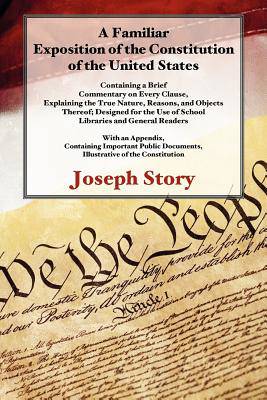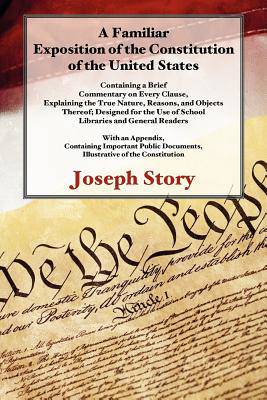
Je cadeautjes zeker op tijd in huis hebben voor de feestdagen? Kom langs in onze winkels en vind het perfecte geschenk!
- Afhalen na 1 uur in een winkel met voorraad
- Gratis thuislevering in België vanaf € 30
- Ruim aanbod met 7 miljoen producten
Je cadeautjes zeker op tijd in huis hebben voor de feestdagen? Kom langs in onze winkels en vind het perfecte geschenk!
- Afhalen na 1 uur in een winkel met voorraad
- Gratis thuislevering in België vanaf € 30
- Ruim aanbod met 7 miljoen producten
Zoeken
€ 27,95
+ 55 punten
Uitvoering
Omschrijving
THE POPULAR EDITION OF A LANDMARK STUDY OF THE U.S. CONSTITUTION First published in 1833, Joseph Story's three-volume Commentaries on the Constitution (1833) was the first extensive study of the Federal Constitution and the standard work of the antebellum era. Story also produced an abridged one-volume edition for advanced students. A Familiar Exposition of the Constitution is a condensed version of his abridgment designed for general readers. Written in a popular manner, it retains the hallmarks of his original work. "He has done more than any other English-speaking man in this century to make the law luminous and easy to understand." --Oliver Wendell Holmes on Joseph Story, 1886 Apart from James Kent, no man has had greater influence on the development of American law than Joseph Story [1779-1845]. He was Dane Professor of Law at Harvard, where he played a key role in the growth of the school and the establishment of its national eminence, and an associate justice of the U.S. Supreme Court, where he was the author of several landmark decisions, such as Martin v. Hunter's Lessee. His many books, most notably the monumental work Commentaries on the Constitution, have been cited extensively, and he remains an authority today.
Specificaties
Betrokkenen
- Auteur(s):
- Uitgeverij:
Inhoud
- Aantal bladzijden:
- 376
- Taal:
- Engels
Eigenschappen
- Productcode (EAN):
- 9781616192723
- Verschijningsdatum:
- 26/03/2012
- Uitvoering:
- Paperback
- Formaat:
- Trade paperback (VS)
- Afmetingen:
- 152 mm x 229 mm
- Gewicht:
- 548 g

Alleen bij Standaard Boekhandel
+ 55 punten op je klantenkaart van Standaard Boekhandel
Beoordelingen
We publiceren alleen reviews die voldoen aan de voorwaarden voor reviews. Bekijk onze voorwaarden voor reviews.









